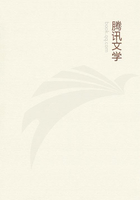Everyone who has paid even a flying visit to Toledo will remember the ruined castle that crowns the hill above the spot where the bridge of Alcantara spans the gorge of the Tagus, and with its broken outline and crumbling walls makes such an admirable pendant to the square solid Alcazar towering over the city roofs on the opposite side. It was built, or as some say restored, by Alfonso VI shortly after his occupation of Toledo in 1085, and called by him San Servando after a Spanish martyr, a name subsequently modified into San Servan (in which form it appears in the "Poem of the Cid"), San Servantes, and San Cervantes: with regard to which last the "Handbook for Spain" warns its readers against the supposition that it has anything to do with the author of "Don Quixote." Ford, as all know who have taken him for a companion and counsellor on the roads of Spain, is seldom wrong in matters of literature or history. In this instance, however, he is in error. It has everything to do with the author of "Don Quixote," for it is in fact these old walls that have given to Spain the name she is proudest of to-day. Gonzalo, above mentioned, it may be readily conceived, did not relish the appropriation by his brother of a name to which he himself had an equal right, for though nominally taken from the castle, it was in reality derived from the ancient territorial possession of the family, and as a set-off, and to distinguish himself (diferenciarse) from his brother, he took as a surname the name of the castle on the bank of the Tagus, in the building of which, according to a family tradition, his great-grandfather had a share.
Both brothers founded families. The Cervantes branch had more tenacity; it sent offshoots in various directions, Andalusia, Estremadura, Galicia, and Portugal, and produced a goodly line of men distinguished in the service of Church and State. Gonzalo himself, and apparently a son of his, followed Ferdinand III in the great campaign of 1236-48 that gave Cordova and Seville to Christian Spain and penned up the Moors in the kingdom of Granada, and his descendants intermarried with some of the noblest families of the Peninsula and numbered among them soldiers, magistrates, and Church dignitaries, including at least two cardinal-archbishops.
Of the line that settled in Andalusia, Deigo de Cervantes, Commander of the Order of Santiago, married Juana Avellaneda, daughter of Juan Arias de Saavedra, and had several sons, of whom one was Gonzalo Gomez, Corregidor of Jerez and ancestor of the Mexican and Columbian branches of the family; and another, Juan, whose son Rodrigo married Dona Leonor de Cortinas, and by her had four children, Rodrigo, Andrea, Luisa, and Miguel, our author.
The pedigree of Cervantes is not without its bearing on "Don Quixote." A man who could look back upon an ancestry of genuine knights-errant extending from well-nigh the time of Pelayo to the siege of Granada was likely to have a strong feeling on the subject of the sham chivalry of the romances. It gives a point, too, to what he says in more than one place about families that have once been great and have tapered away until they have come to nothing, like a pyramid.
It was the case of his own.
He was born at Alcala de Henares and baptised in the church of Santa Maria Mayor on the 9th of October, 1547. Of his boyhood and youth we know nothing, unless it be from the glimpse he gives us in the preface to his "Comedies" of himself as a boy looking on with delight while Lope de Rueda and his company set up their rude plank stage in the plaza and acted the rustic farces which he himself afterwards took as the model of his interludes. This first glimpse, however, is a significant one, for it shows the early development of that love of the drama which exercised such an influence on his life and seems to have grown stronger as he grew older, and of which this very preface, written only a few months before his death, is such a striking proof. He gives us to understand, too, that he was a great reader in his youth; but of this no assurance was needed, for the First Part of "Don Quixote" alone proves a vast amount of miscellaneous reading, romances of chivalry, ballads, popular poetry, chronicles, for which he had no time or opportunity except in the first twenty years of his life; and his misquotations and mistakes in matters of detail are always, it may be noticed, those of a man recalling the reading of his boyhood.
Other things besides the drama were in their infancy when Cervantes was a boy. The period of his boyhood was in every way a transition period for Spain. The old chivalrous Spain had passed away.
The new Spain was the mightiest power the world had seen since the Roman Empire and it had not yet been called upon to pay the price of its greatness. By the policy of Ferdinand and Ximenez the sovereign had been made absolute, and the Church and Inquisition adroitly adjusted to keep him so. The nobles, who had always resisted absolutism as strenuously as they had fought the Moors, had been divested of all political power, a like fate had befallen the cities, the free constitutions of Castile and Aragon had been swept away, and the only function that remained to the Cortes was that of granting money at the King's dictation.















